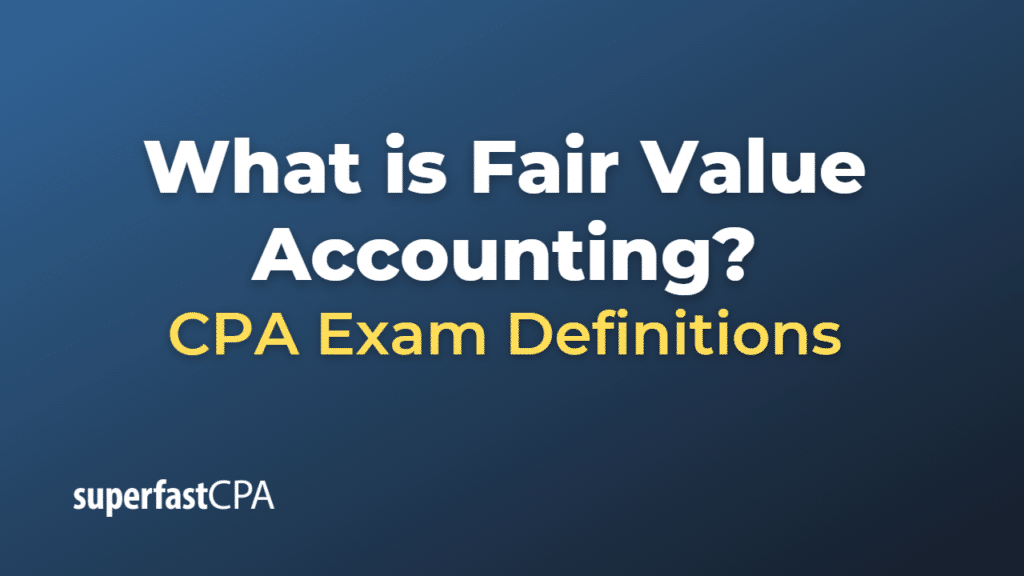Fair Value Accounting
Fair value accounting is a financial reporting approach in which companies are required or permitted to measure and report on an ongoing basis certain assets and liabilities (usually financial instruments) at estimates of the prices they would receive if they were to sell the assets (or would pay if they were to be relieved of the liabilities).
In simpler terms, fair value accounting involves adjusting the values of a company’s assets or liabilities to reflect current market prices, or the best estimates of the prices a company would receive if it were to sell the assets or settle the liabilities.
The aim of fair value accounting is to provide a more accurate picture of a company’s current financial condition. This approach contrasts with historical cost accounting, in which assets and liabilities are usually recorded at their original cost and this value is carried forward over time.
Fair value accounting is used widely in different areas. For instance, it is used for trading securities, derivatives, and certain other financial assets and liabilities, as well as for some types of tangible assets like real estate.
There are three main levels of fair value measurement hierarchy, according to the availability of reliable data:
- Level 1: Observable prices in active markets for identical assets or liabilities. This is the most reliable and objective type of fair value measurement.
- Level 2: Observable prices for similar (not identical) assets or liabilities in active markets, or observable inputs other than quoted prices.
- Level 3: Unobservable inputs, meaning that there’s no market data on the asset or liability. These measurements are the least objective and require the most judgment.
One criticism of fair value accounting is that it can increase volatility in a company’s reported earnings, since asset and liability values may fluctuate over time due to changes in market prices. It can also involve a degree of subjectivity when market prices are not available and estimates must be used instead.
Example of Fair Value Accounting
Let’s use a fictional technology company, TechGlobal Inc., as an example.
TechGlobal Inc. invests a portion of its available cash in marketable securities, specifically shares of other technology companies. These shares are considered trading securities, meaning TechGlobal buys them with the intent of selling them in the short term to make a profit.
Let’s say TechGlobal bought 1,000 shares of FutureTech Corp. at $50 per share, for a total cost of $50,000. In historical cost accounting, this investment would typically be recorded at its original cost of $50,000 and would stay at that value on the balance sheet unless the value of the securities becomes impaired.
However, in fair value accounting, TechGlobal adjusts the value of its FutureTech shares to reflect their current market price at the end of each reporting period. So, if FutureTech’s shares are trading at $55 at the end of the quarter, TechGlobal would adjust the value of the investment on its balance sheet to $55,000 (1,000 shares * $55/share). This adjustment is recorded as an unrealized gain in the income statement.
Conversely, if FutureTech’s shares drop to $45, TechGlobal would adjust the value of the investment to $45,000, and would record an unrealized loss. These gains or losses are “unrealized” because TechGlobal hasn’t actually sold the shares. If and when TechGlobal does sell the shares, the gain or loss becomes “realized.”
The purpose of this fair value adjustment is to give users of TechGlobal’s financial statements a more accurate picture of the company’s current financial condition, by showing the current market value of its investments rather than their original cost.
It’s important to note, though, that this can increase the volatility of TechGlobal’s reported earnings, as they will be affected by fluctuations in the market price of FutureTech’s shares. Additionally, if the market for FutureTech’s shares is not very active, estimating their fair value may involve some subjectivity and judgment.













